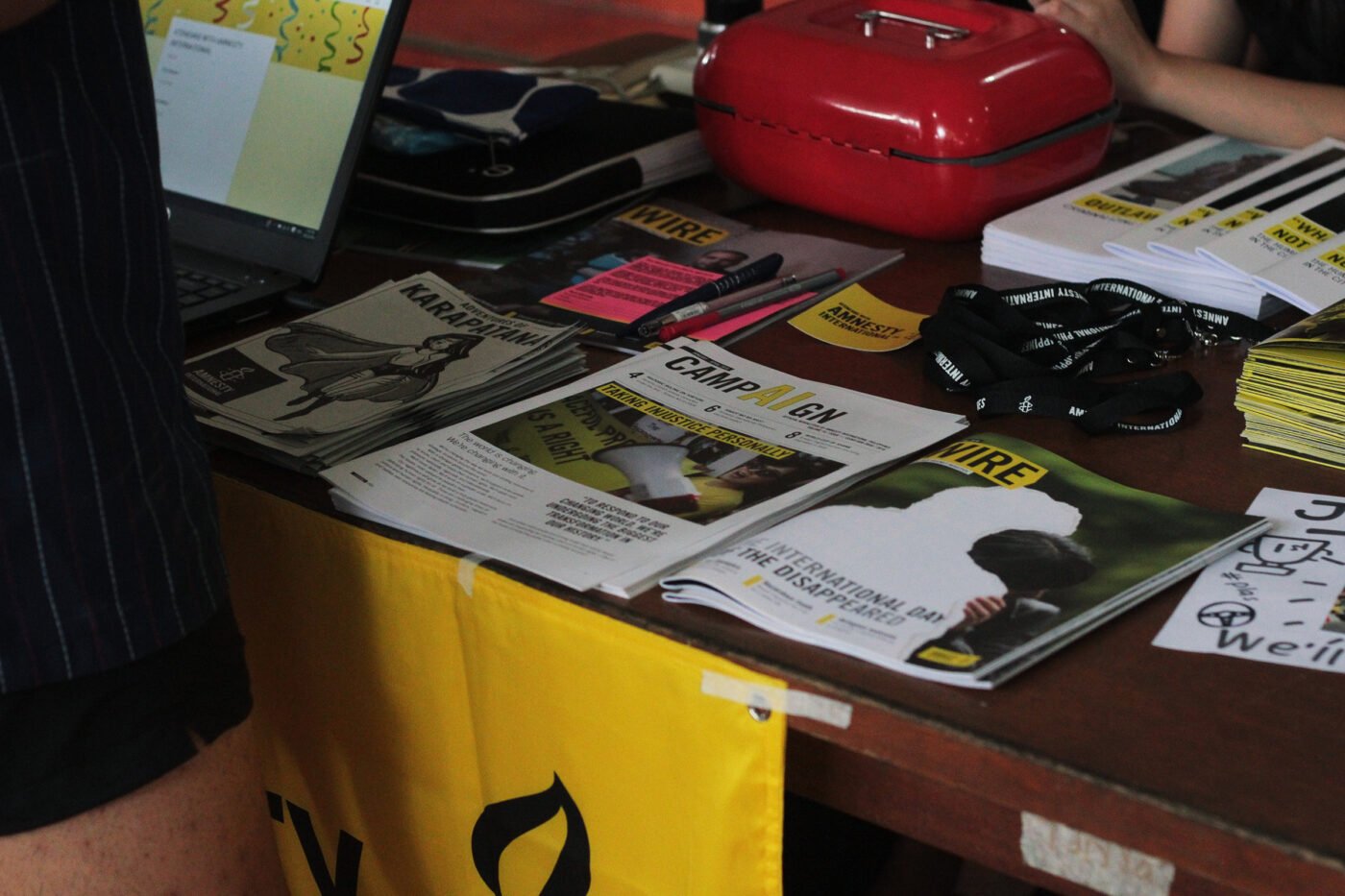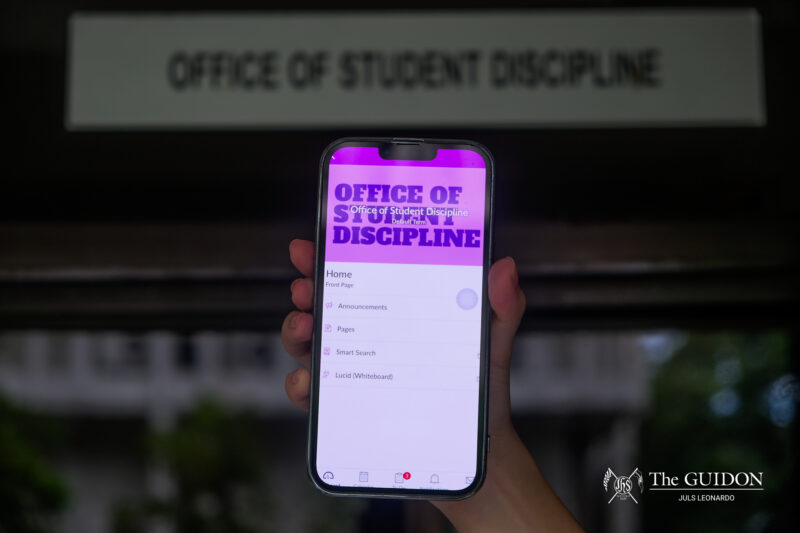GLOBAL HUMAN rights group Amnesty International (AI) launched a local chapter in the Ateneo during the Unaccredited Student Groups Recruitment Period on September 20-22 in the Loyola Schools.
The launching of the AI branch in the Ateneo comes in the wake of President Rodrigo Duterte’s controversial “War on Drugs”, which has seen a rise in human rights violations, specifically involving extrajudicial killings (EJKs).
Ateneans with Amnesty International PH garnered 210 applicants during the recruitment period. According to President Selina Miranda, the large number of applicants caught them by surprise.
“Our target actually was only 80 members, but then we reached 210. It was so overwhelming,” Miranda said.
She added that most of the applicants already knew about AI beforehand, owing to the popularity of the organization outside of the campus.
Vice President Ika Adamos echoed the same sentiments but emphasized the importance of the involvement of the Ateneo community as a whole. Adamos hopes that the entire Ateneo community will soon follow suit and get involved.
AI is a non-government organization that advocates for the safeguarding of human rights. It is a worldwide movement that is supported by over seven million people from 150 countries.
Addressing national concerns
Miranda pointed out that the organization is not necessarily against the Duterte administration, but the EJKs occurring under his rule.
“We are non-political; we are non-economical; we are a non-religious organization,” she said. “All we want actually is an unbiased, impartial investigation on these accounts.”
Meanwhile, AI Philippines Campaigns Manager Wilnor Papa highlighted that more people are needed “to press and to communicate their concerns and what they think the government should do with regards to these concerns.”
“That’s why mataas ang value natin sa freedom of expression, kasi dito nalalaman ng gobyerno kung anong kailangan natin (this is how the government is able to know our needs),” Papa said.
He also stressed that Amnesty International is just one part of the human rights community whose aim is to spread the word on the importance of one’s rights.
“The more people who know about their rights, the more people who will work on their rights and the rights of others, is going to be very beneficial for this country in the long run,” Papa added.
In line with this, Miranda said that she hopes that AI in Ateneo will become more embedded in the university’s culture.
“I want us to have an attitude of promoting and defending not just our rights but other people’s rights as well, especially as Ateneans,” she said.
Revival of the movement
According to Papa, this is not the first partnership between AI and Ateneo. The organization had been established way back in 1984, with Ateneo and University of the Philippines (UP) as its pioneer groups.
He said that Senator Risa Hontiveros was the front woman for Ateneo back then, while Commission on Human Rights Chairperson Chito Gascon was her counterpart for UP.
Papa also said that the organization has expanded to other Philippine universities, such as Ateneo de Davao, Ateneo de Zamboanga, UP Baguio, Polytechnic University of the Philippines (PUP), Far Eastern University (FEU), and De La Salle University (DLSU).
With regards to organizing AI in universities, Papa said that AI needs people who can actually be mobilized to support human rights.
“We need able-bodied people, people who are passionate about human rights and changing the situation, not just in the Philippines but in different parts of the world,” he said.
Moreover, Adamos mentioned that Ateneo’s recent initiative sprung from the ideas of one of her friends Abby Payumo, who was a volunteer for AI Australia during her Junior Term Abroad (JTA) and wanted to bring AI to the Ateneo.
It was after JTA when they “started conceptualizing, arranging documents and reached out to AI mismo,” Adamos said.
Ateneans for Human Rights
Adamos said that they want the Ateneo community to be knowledgeable about human rights because “it’s not just applicable in the present situation but it’s going to be applicable for the rest of our lives.”
“They always say ‘kabataan ang pag-asa ng bayan,’ and I think it would be nice kung magiging pag-asa tayo (we become hope) in a sense that we know what we’re fighting for.”
According to Miranda, the Ateneo branch is deeply rooted in being “men and women for others.” As for Ateneans advocating for human rights, she said that Ateneans “have a sort of influence, and I want to use that for the good.”
Adamos mentioned that Ateneans have always been active on social media and that it is a great arena in imparting AI’s message.
“If AI gets its message across to people, sana we’ll be able to spark a change in the youth, at least for now, to start fighting for the things that matter,” she said.







